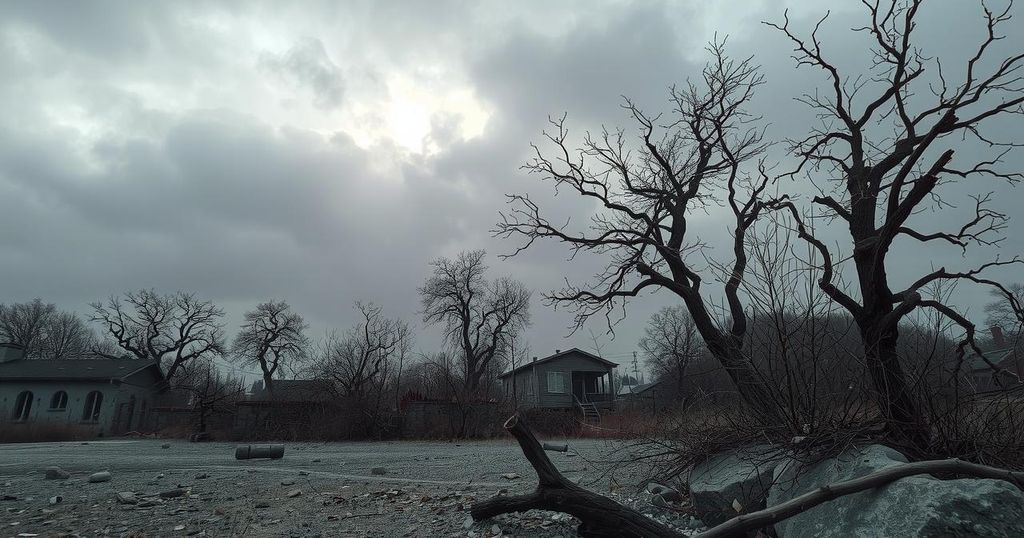World news
ADF, AFRICA, AFRICA CENTER FOR STRATEGIC STUDIES, AL JAZEERA, ALLIED DEMOCRATIC FORCES, BUKAVU, CIVIL WAR, CODECO, CONGO, CONGO (KINSHASA), COOPERATIVE FOR THE DEVELOPMENT OF CONGO, DEMOCRATIC REPUBLIC OF THE CONGO, DISPLACEMENT, DR CONGO, DRC, GOMA, HUMANITARIAN, HUMANITARIAN CRISIS, ITURI, KINSHASA, KIVU, M23, NORTH, PAUL NANTUL, PAUL NANTULYA, RWANDA, SEXUAL VIOLENCE, SOUTH KIVU, UGANDA, UK, UNITED NATIONS, WALIKALE, WAR
Daniel O'Connor
0 Comments
Renewed Conflict in the DRC: Echoes of a Troubled Past and Calls for Stability
The Democratic Republic of the Congo faces renewed conflict as M23 rebels advance, prompting fears of a larger regional war involving Rwandan and Ugandan troops. Historical grievances and resource exploitation continue to fuel violence, while calls for national dialogue highlight the need for substantial reforms. Analysts stress that the well-being of the Congolese people must prioritize negotiations to secure peace and stability.
The ongoing resurgence of conflict in the Democratic Republic of the Congo (DRC) raises alarming specters of its tumultuous past. M23 rebels have recently captured significant eastern cities such as Goma and Bukavu, compelling local communities to either prepare for combat or flee to safety. Despite Kinshasa’s $5 million bounty for M23 leaders, the group’s momentum remains unimpeded, with the ongoing fighting having claimed approximately 7,000 lives since January.
In the midst of these developments, Ugandan troops have reinforced their presence along the border, allegedly combating the Allied Democratic Forces and CODECO in Ituri province. Observers note that such troop movements evoke memories of the Second Congo War, posing a threat of larger regional conflict. The current situation is drawing parallels to past interferences by Rwanda and Uganda, who played pivotal roles in the DRC’s tumultuous history.
Political analyst Paul Nantulya emphasized this concern, stating, “We are indeed seeing a replica of the Second Congo War with the same actors but in slightly different configurations.” Historical grievances, particularly the presence of anti-Rwandan rebels in the DRC and the DRC’s rich mineral resources, have perpetuated cycles of violence, exacerbated by governmental corruption.
The interplay between various armed factions has persisted for over three decades, leading to millions of deaths and extensive displacement. The DRC’s recent history reflects low-level violent conflict, stemming from Rwanda’s claim to pursue Hutu genocidaires. Subsequent regional conflicts and their political implications resulted in vast humanitarian crises, drawing international attention and protest during the late 1990s.
International accusations against Rwanda and Uganda for violations of human rights and exploitation of resources further complicate the situation. The International Court of Justice has ruled against Uganda, ordering reparations for its historical actions. However, the DRC’s attempt to seek justice for Rwanda’s transgressions has yet to see resolution, highlighting the ongoing complexity of regional relations.
Amidst the backdrop of new rebel leadership under Corneille Nangaa, tensions continue as neighboring countries reaffirm their involvement in the DRC, with Rwanda actively supporting M23. As Uganda navigates its ambiguous stance, it remains critical in regional dynamics while accusations of collusion linger unaddressed.
Analysts advocate for a collective regional effort to engage in peace and negotiation, coupled with internal reforms needed within the DRC to address governance and military weaknesses. Current initiatives for national dialogue and accountability efforts signal a recognition of past grievances while aiming to prioritize the Congolese populace’s needs.
Kambale Musavuli succinctly encapsulates the necessity for respite, stating, “We’re saying that the people of the Congo have to be alive so that they can rebuild the country for the benefit of the African continent. That’s why DRC needs a break. Not just for themselves, but for the entire African continent.”
The DRC’s ongoing conflicts have reignited traumatic memories of its violent past, as M23 rebels advance amid the involvement of neighboring troops. Despite international efforts and rising humanitarian concerns, the complexities of regional dynamics and internal governance challenges hamper progress. There is a crucial need for dialogue, accountability, and comprehensive reforms to ensure the stability and well-being of the Congolese people, emphasizing that the DRC’s stability is imperative for the broader African continent.
Original Source: www.aljazeera.com




Post Comment